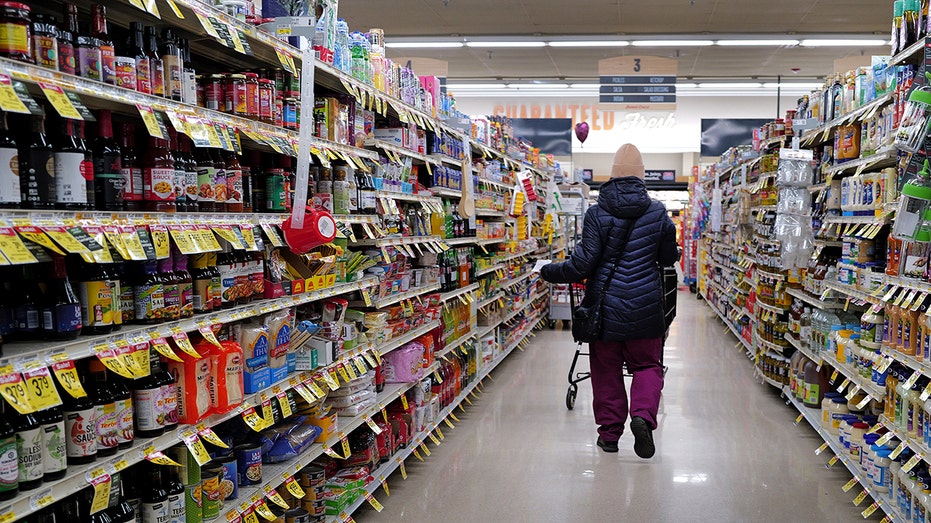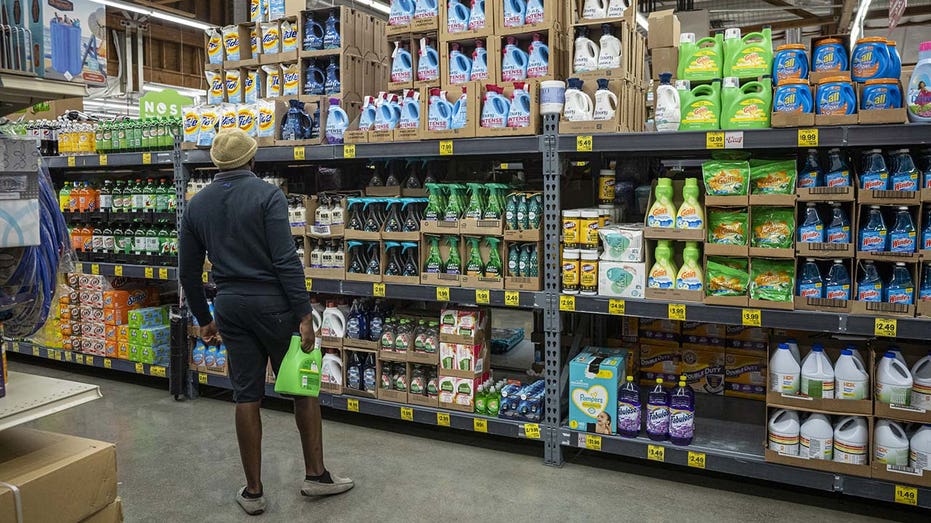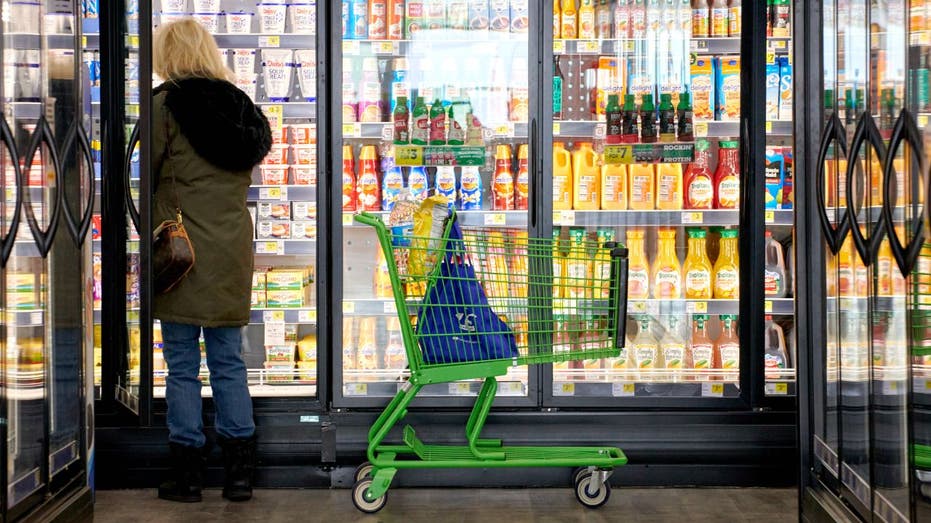O’Leary Ventures Chairman Kevin O’Leary joins ‘Fox & Friends’ to discuss his conversation with President Donald Trump regarding the tariffs on Canada and Mexico and Elon Musk’s claim the U.S. Treasury approved fraudulent payments.
A swath of foods will be impacted by sweeping tariffs the U.S. is placing on major trading partners in an effort to curb the flow of drugs and illegal immigrants into the country, according to experts.
With grocery retailers already operating on razor-thin profit margins – often ranging from 1% to 5% – such businesses may be inclined to pass costs on to customers, according to Kelly Beaton, the chief content officer at The Food Institute.
While tariffs on Mexican imports are suspended for one month, the U.S. is still following through on plans to impose a 25% tariff on imports from Canada as well as a 10% tariff on imports from China in response to the “threat posed by illegal aliens and drugs, including deadly fentanyl,” the White House said in a statement.
TRUMP TARIFFS TAKE EFFECT SATURDAY: WHAT TO KNOW
Canada retaliated with a 25% levy on U.S. imports that would take effect on Tuesday, and the Chinese government, which is also challenging Trump’s move, plans to take “respective countermeasures to reliably defend its rights and interests,” according to reports.

A customer shops at a grocery store on Feb. 13, 2024, in Chicago. (Scott Olson / Getty Images)
When tariffs are implemented, including ones pending against Mexico, the institute said that food and beverage products “will soon cost more,” according to Beaton, who referenced Mexican avocados, Mexican beers from brands like Modelo and Corona, Canadian maple syrup and Canadian grain as examples.
She also added that the “consensus seems to be that cereal could also soon cost more in America, since it’s a common import from all three countries that Trump has targeted with tariffs.”
TRUMP’S PROPOSED TARIFFS COULD DRIVE UP FOOD PRICES, EXPERTS SAY
There will be an impact on imported dairy, meat and various vegetables too, though it’s hard to pinpoint what that will look like, experts say.
The U.S. gets a significant amount of its hogs and beef imports from Canada, so there “will undoubtedly” be higher costs tied to importing these animals and will likely lead to higher prices for beef and pork in America, Beaton said. In 2022, the U.S. imported more than $37 billion worth of agricultural products from Canada, according to the U.S. Agriculture Department.

A shopper inside a grocery store in San Francisco on May 2, 2022. (David Paul Morris/Bloomberg via / Getty Images)
Sylvain Charlebois, professor and senior director of the Agri-Food Analytics Lab, also highlighted the threat to meat prices given how reliant the U.S. is on Canada for such products, especially beef and pork.
“Canada is a key supplier to the U.S. meat market, and any added costs from tariffs could push up prices for American consumers,” Charlebois said, adding that the U.S. is already struggling to maintain beef supply due to drought and production issues.
Restricting Canadian imports will only “tighten the market further and contribute to inflation in this category,” Charlebois added.
There also may be “noticeable price increases” for seafood, particularly lobster and snow crab, especially in coastal regions where Canadian seafood is common. Stores may be forced to seek alternative sources, which could result in either higher prices for consumers, or they may cut back on inventory, Charlebois said.
But fresh produce is also at risk. For instance, greenhouse-grown vegetables from Canada, such as tomatoes, peppers and cucumbers play a significant role in U.S. grocery supply, particularly during colder months.

A shopper inside a Dollar General Market store in Saddlebrook, New Jersey, on Feb. 29, 2024. (Gabby Jones/Bloomberg via / Getty Images)
Regardless, the bigger issue, Charlebois said, is that the “broader impact of these tariffs could exacerbate food inflation in the U.S.” at a time when households are already struggling with grocery prices.
“While the full effect will depend on how retailers and suppliers respond, the tariffs are almost certain to increase costs for U.S. consumers, particularly in categories where Canada plays a crucial role in supply. This move could further strain household budgets, particularly for middle- and lower-income Americans who are already dealing with rising costs of living,” Charlebois continued.
TRUMP’S PROPOSED TARIFFS COULD DRIVE UP FOOD PRICES, EXPERTS SAY
Democrats and opponents have long argued that the cost of the tariffs would just be passed on to American consumers. Over the past several months, many retailers have raised concerns about the prospect of tariffs pumping up the costs of their products or even forcing them to cut back on inventory.
Trump said in a social media post on Sunday that there could “be some pain” for Americans but that “it will all be worth the price that must be paid.”
The White House said in a statement that the levies are a tactic for Trump “to hold Mexico, Canada, and China accountable to their promises of halting illegal immigration and stopping poisonous fentanyl and other drugs from flowing into our country.”
GET FOX BUSINESS ON THE GO BY CLICKING HERE
The tariffs are sending a message “that the flow of contraband drugs like fentanyl to the United States, through illicit distribution networks, has created a national emergency, including a public health crisis,” the White House said.
